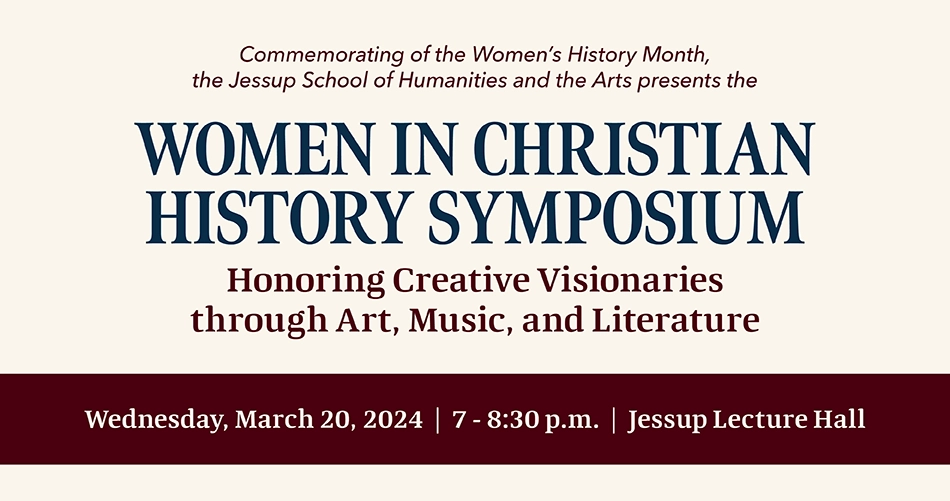
Jessup’s Annual Women’s History Month Symposium
Highlighting the scholarship and expertise of the faculty of Humanities and Arts, the department hosts their second annual spring symposium in conjunction with Women’s History month on Wednesday, March 20 from 7 to 8:30 p.m. Jessup faculty members, Dorisa Costello, Abigail Feely, Irene Matson, Liz Stanley and Department Chair, Rex Gurney will present on women who have impacted Christianity. The event is open to the public and also features Jessup’s Masterworks Chorale, a performance group centered in traditional choral repertoire drawing from the Renaissance, Baroque, Classical, Romantic, and Contemporary periods of time.
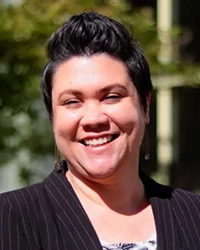
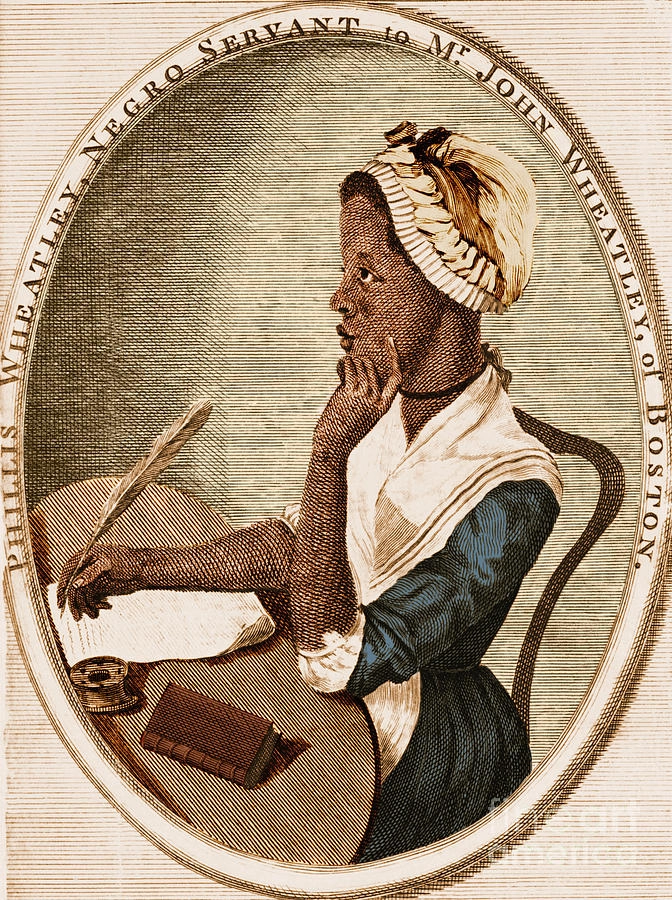
Dorisa Costello, Ph.D.
“A Voice of Faith and Freedom: The Poetry and Activism of Phillis Wheatley”
Dorisa Costello will discuss the life of Phillis Wheatley Peters, broadly recognized as the first African American woman, and the third American woman to publish a book of poems. Inspiring generations of writers, Wheatley was an eight-year-old enslaved girl from West Africa brought to the US during the mid 1700s and given the opportunity to learn to read and write, later mastering English, Greek and Latin. Publishing her first poem in 1767, Wheatley was faced with defending her work as many didn’t believe such extraordinary work could be done by a young African American woman. She later converted to Christianity and believed God gave her a unique voice to speak about what it meant to be free.
“Wheatley was faithful to how God gifted her,” Costello said. “She used her intellect and writings to convict the spirit of people in the colonies who called themselves Christians, but weren’t acting that way.” Enslavers read her work to convince the enslaved population to convert while abolitionists benefitted as Wheatley’s work demonstrated the intellectual abilities of people of color.
Wheatley’s story resonates with Costello because of her desire to bring a wider scope to voices that may not be heard. Costello teaches creative writing and British literature courses at Jessup and oversees the production of the English department’s Mentonym journal.
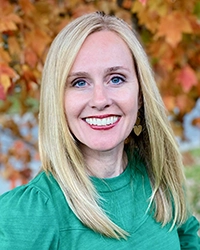
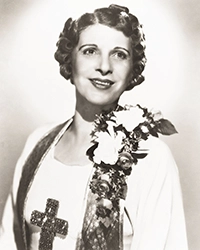
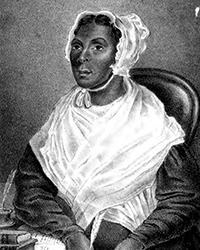
Abigail Feely, Ed.D.
“The Power and the Platform: Jarena Lee, Aimee Semple McPherson, and the American Female Evangelist Tradition”
Women’s History professor Abigail Feely will present on two female evangelists, Jarena Lee and Aimee Semple McPherson. Although these women come from different centuries and backgrounds, Feely will reveal their similarities and the connections between them. “While both of these evangelists initially wrestled with their callings, they each surrendered to God’s call on their lives resulting in great impact,” Feely said. “Since the colonial period, American women have wrestled with their role in leadership. Many of us have grown up learning distinct limits for what women can do, but the reality is that women have been stepping out in faith to use their gifts for God’s glory for centuries. If there’s one thing I want participants to take away, it’s that they are inspired to learn more about these women and others like them.”
Feely has been teaching at Jessup for nearly five years and is passionate about women’s history. “Christian women have such a significant legacy, in church history, American history and world history,” she said. “Women’s history provides critical context for understanding where we’ve been in the past, how we got to where we are today, and where we need transformational leaders to take us in the future. It’s critical for students to be able to navigate topics raised by women’s history. If we aren’t engaging in these conversations, students won’t be equipped to respond to these important discussions in society today.”
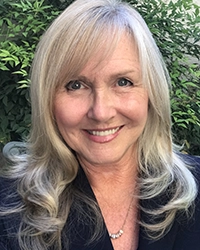
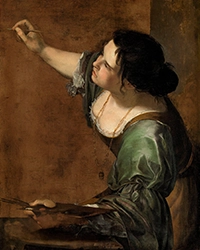
Irene Matson, M.A.
“Out of the Shadows: The Illumination of Biblical Women by Artemisia Gentileschi”
Honing in on female artists who paint biblical scenes, Irene Matson will discuss works of Artemisia Gentileschi’s including Judith Slaying Holofernes as well as David and Bathsheba. “During the process of earning my master’s in art history, I was shocked to learn how many artists in the Renaissance were female, sometimes earning commissions higher than their male counterparts, and how, through the passing of time their work was credited to other males.” Matson said. “Artemisia was the first female to be admitted into the prestigious Academy of Design in Florence, and opened the door for many female artists. She painted for the most prominent leaders of the time in England, Rome, Florence and Spain.” Matson explained that for the most part, many female artists were unidentified until the women’s movement in the 70s caused people to ask, “Where are all the women artists?” In the 80s and 90s, research documented a significant amount of artwork was created by women, but attributed to men. For example, many works attributed to Caravaggio were actually painted by Artemisia.
“Our women’s symposium is an important event because we are utilizing historical records to assign attribution correctly.” Matson said. “It’s especially important for women to see and learn about these works, understanding that women have been artists for over 400 years. Female artists aren’t an oddity – they’ve just been overlooked.” Matson has taught at Jessup for nine years and currently teaches Art Criticism and Analysis.
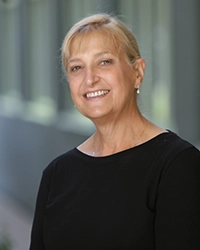
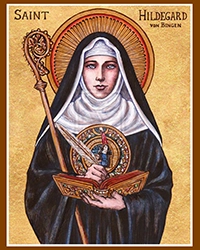
Liz Stanley, DMA & Masterworks Chorale
“Hildegard of Bingen: A Fiery Light; A Feather on the Breath of God”
Liz Stanley will present on Hildegard of Bingen. There are more surviving chants by Hildegard than any other composer from the entire Middle Ages. In her role overseeing the Masterworks Chorale, Stanley has opted to share some of the musical works of this 12th century radical nun. Masterworks Chorale students will also depict an example of Hildegard’s liturgical drama the Ordo Virtutum (order of verbatim), also known as a morality play. “She was different for her time,” Stanley said. “She was innovative and influential, writing books on medicine and sending letters to popes and emperors. Her work improved the rights of women and fought against discrimination.” Hildegard practiced holistic healing using natural remedies to maintain health and shun illness or injury. Stanley plans to share a few of these antidotes as well during her presentation.
Unafraid of controversy or criticism, Hildegard stood up to ecclesiastical and secular authority when she believed she was right. Even in her eighties, she remained steadfast regarding a request to exhume the body of a young man who died excommunicated, going so far as to change the grave markers so his exact plot couldn’t be located.
Professor Stanley has been a staple at Jessup, teaching with the university since 1996. In addition to teaching seven music courses, she oversees senior recitals, directs Masterworks Chorale and serves as Jessup’s Director of Academic Research.
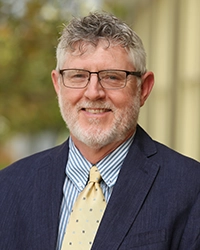
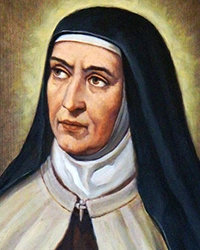
Rex Gurney, Ph.D.
“Teresa of Avila: Architect of Interior Castles and Patron Saint of Spain”
Department Chair Rex Gurney will present on Teresa of Avila: Architect of Interior Castles and Patron Saint of Spain. Gurney will share about her life, struggles with the inquisition and her “Martha/Mary” reputation in history as both a mystic and a “politically savvy” foundress of a new order of nuns (The Discalced Carmelites). He also plans to discuss her relationship with St. John of the cross.
